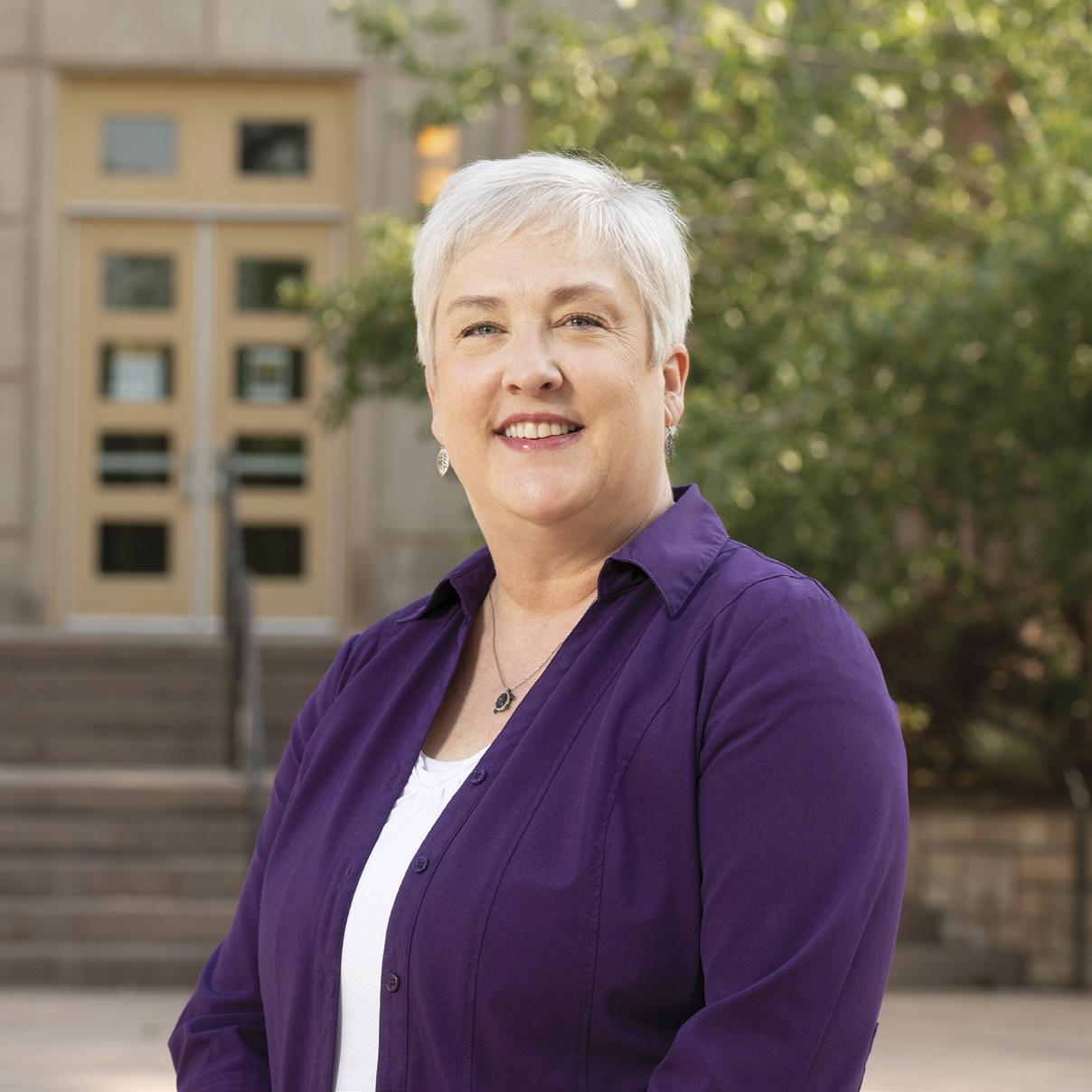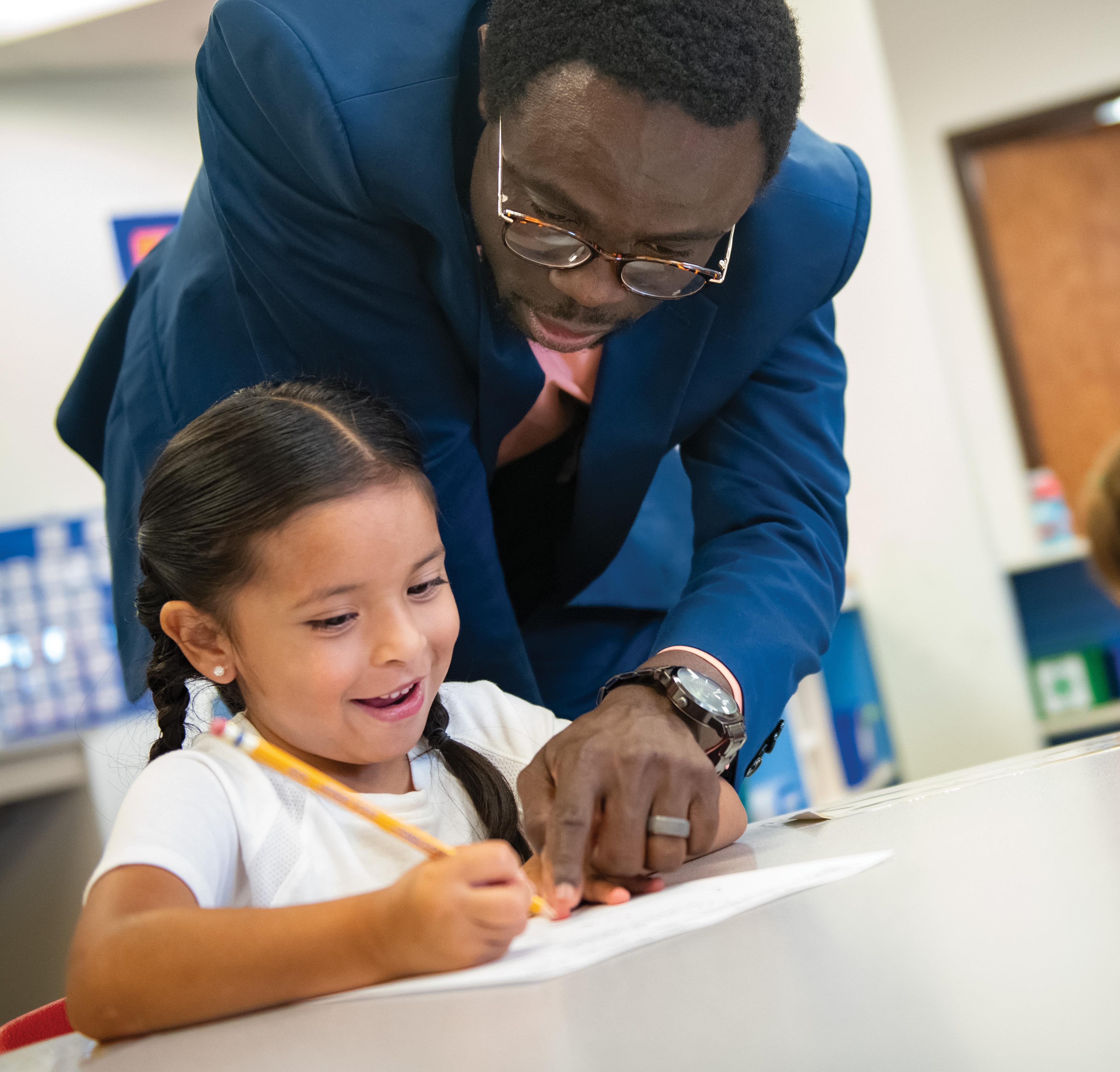
4 minute read
A Future Vision: Improving Early Childhood Education in Wyoming
A FUTURE VISION
Improving early childhood education in Wyoming
UW Associate Lecturer and Early Childhood Outreach Network Director Nikki Baldwin works with a young child named Carter Carlisle.
By Jason Harper
University of Wyoming Senior Lecturer and Wyoming Early Childhood Outreach Network (WYECON) Director Nikki Baldwin is a passionate advocate for early childhood education. She not only inspires future educators in her role at UW, but has also worked tirelessly to help lay the foundation for an improved early childhood education infrastructure in Wyoming.
“Families, young children and early childhood educators in Wyoming have experienced the negative impacts of a lack of funding and disconnected or nonexistent systems of support for too long,” says Baldwin. “Research has long recognized how vital early experiences are in shaping children’s lives, and now leaders in Wyoming acknowledge that we must create a new vision for supporting our youngest children, their families and those who care for and educate them.”
Student achievement is closely linked to the knowledge and skills of their teachers. Baldwin’s aim is to improve the knowledge and abilities of future and current early childhood professionals throughout the state, so their students might experience greater

confidence and success throughout their education.
Baldwin is utilizing her expertise to serve as a member of the Wyoming Early Childhood State Advisory Council. She was appointed to the role by Gov. Mark Gordon. The group is working to develop an in-depth strategic plan and a comprehensive statewide birth to age five needs assessment that will guide the state’s decisions around early childhood education.
The group hopes to utilize existing early childhood resources more efficiently; encourage partnerships among child care and prekindergarten providers, Head Start programs and state and local governments; and also improve transitions between early childhood programs and school systems.
“I hope to access the expertise of the early childhood faculty in the College of Education to help inform the work of the council and ensure our decisions are informed by a strong evidence base,” says Baldwin. “Faculty knowledge can guide the council’s efforts to identify and share best practices that support the education of early childhood teachers as they progress in their careers.”
The council will be sharing important resources in a new online portal, which Baldwin is currently leading development of. The portal includes a resource library, original professional learning content, blog posts and a new podcast “Voices from the Village”.
“We are so excited to be in production of our new podcast, which will link the voices of national experts with the wisdom and experience of Wyoming early childhood educators,” Baldwin says.
Baldwin also served as a member of the grant-writing team whose efforts successfully obtained $2 million in funding from the U.S. Department of Health and Human Services’ Administration for Children and Families to support the council’s work. The team is currently writing a three-year renewal grant that will be awarded this December, built upon the work of the original Preschool Development Grant.
Baldwin is also a crucial leader of the Wyoming Early Child hood Professional Learning Collaborative. This group is working to improve the education of Wyoming’s youngest learners, at a critical stage in their development, by bringing professional learning opportunities to their teachers.
“Early childhood educators overwhelmingly list isolation and lack of resources as their biggest challenges. In a profession that is so physically, emotionally and cognitively draining, these professionals need connections with one another, opportunities to collaborate, and resources they can access locally to help them gain knowledge and grow as professionals,” Baldwin says. “This model brings training, mentoring and coaching opportunities directly to early childhood professionals.”
The model developed by the collaborative uses seven regional learning facilitators, serving every peak and valley in the state, to deliver content directly to educators via local STARS trainings, online learning communities and individualized learning tools such as on-site mentoring and coaching.
“Our professional learning facilitators are not only providing these opportunities locally, but also are elevating early childhood leaders in programs and communities to build their capacity to support their own professional learning efforts,” Baldwin says. “This is about raising up the entire early childhood profession one teacher, leader and program at a time.”
Now in its second year, the Professional Learning Collaborative delivers content aligned with the NAEYC Professional Standards and Competencies for Early Childhood Educators, which define the essential body of knowledge, skills, dispositions and practice required of all early childhood educators. These standards are also guiding the development of a Bachelor’s in Early Childhood Education degree at UW.
“We are being very intentional about aligning the professional learning offered through the collaborative with our new degree so that any early childhood educator in the state who is interested will have a clear pathway to higher education,” says Baldwin.









